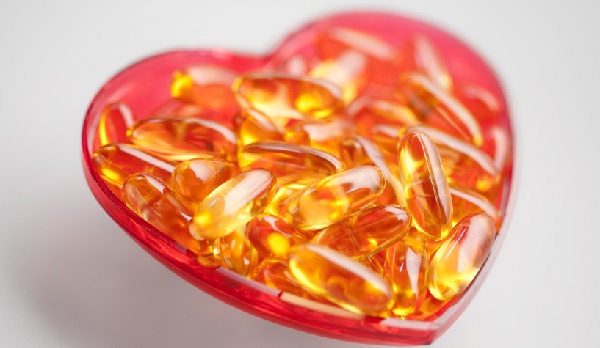As we’ve expanded our product lines in recent months, we’ve also expanded the number of CoQ10 supplements that we carry. After getting numerous questions about our different CoQ10 products, we realized that while most people have heard of CoQ10, not everyone may be aware of all of the great things that CoQ10 can do for your body, from cardiovascular health to antioxidant creation.
So, what is CoQ10, anyway?
CoQ10 (short for CoenzymeQ10) is a vitamin-like antioxidant that’s present in every cell of your body. It’s found in the mitochondria (the “power plants” of cells), and is responsible for generating the energy that your cells use to perform their important functions. Because it’s responsible for your cells’ energy production, the organs that have the highest energy requirements, such as your heart, liver and kidneys, also have the highest concentrations of CoQ10.
CoQ10 was first discovered in 1957, when scientist Frederick Crane synthesized it from the mitochondria in beef heart cells. Peter D. Mitchell won the Nobel Prize in 1978 for his work in figuring out how cells create energy using CoQ10. Needless to say, this has been a well-studied molecule, as it’s also been shown to be low in patients with heart conditions, cancer, muscular dystrophies, Parkinson’s and many other diseases. CoQ10 may also play a role in preventing and reducing the severity of headaches, boosting male fertility and treating the symptoms of gum disease.
CoQ10 is most used to support cardiovascular health, such as assisting in maintaining good cholesterol, reducing high blood pressure and supporting the health of vessel walls. It has also been shown to improve chest pain in patients with angina. CoQ10 supplementation is also extremely important for people taking statins to lower their cholesterol. Because CoQ10 and cholesterol are synthesized from the same substance in your body, taking statins to block cholesterol creation also blocks CoQ10 creation, so it’s especially important for people taking these drugs to get extra CoQ10.
On top of all that, CoQ10 also has powerful antioxidant properties, because it gives up its electrons to other antioxidants (such as Vitamin E and C) that have already been used up, and helps power them back up so they can continue to fight oxidation in cells (just like our good friend Glutathione!). Because of its antioxidant properties, CoQ10 is also used in skin creams and supplements to keep skin looking vibrant and youthful.
CoQ10 comes in two forms: Ubiqionol and Ubiquinone (so named for its ubiquity in the cells of living organisms). Ubiquinol is the active form that your body can use right away to fight free radicals and synthesize energy. Ubiquinone is the oxidized form that your body converts to Ubiquinol. When choosing a CoQ10 supplement, look for one that gets its CoQ10 from Ubiquinol so that your body can use it more readily.
How much should I take?
While there isn’t a set recommended daily value for CoQ10, most practitioners recommend taking around 100mg of CoQ10 per day in order to maintain a healthy cardiovascular system, and more may be needed if you’re taking statins, or have a family history of heart problems. There is no known toxicity with very high doses of CoQ10, and daily doses up to 1,200 mg per day are recommended with no known side effects. Some studies have shown that daily doses of up to 3,600 mg per day are safe, but can cause some gastrointestinal discomfort. Since CoQ10 is a fat-soluble molecule, it’s important to take with a meal that contains olive oils or other fats, or with any oils you might be taking, such as fish oil or flaxseed oil.
Patients who are interested in supplementing CoQ10 through their diets might have a tough time: CoQ10 isn’t available in many foods, and it’s most prevalent in the hearts and livers of chicken, beef and pork. In fact, you’d have to eat more than 2 pounds of beef heart a day in order to get your daily dose of CoQ10. Luckily, CoQ10 is readily available in many supplements. Check out our favorite CoQ10 supplements below:
- Pharmax Chewable CoQ10: This chewable provides 60 mg of CoQ10 in a blackcurrant-flavored chewable, for those who don’t like to swallow a lot of pills.
- Pharmax Finest Pure Fish Oil with CoQ10: This premium-grade fish oil is naturally processed to maintain the highest levels of EPA and DHA possible, while eliminating any fishy taste. Flavored with sweet orange oil, this fish oil tastes great while also providing 1,960 mg of Omega-3 fatty acids and 50 mg of CoQ10. Because the CoQ10 is dissolved in the fish oil, it provides maximum solubility in just 1 teaspoon a day.
- Metabolic Maintenance CoQ10 Powder: Each scoop of this powder provides 100 mg of CoQ10 in a great-tasting, easy-to-use powder that can be mixed with water or juice for easy and flexible dosing.
- Innate Response CoQ10: Each capsule provides 100 mg of CoQ10 from whole-food sources, along with complementary whole-food extracts that help boost its antioxidant properties.






do you have any products intended for improving type II diabetes?
We are working on a Diabetes protocol right now, but we will publish it when we have it ready. Thanks!